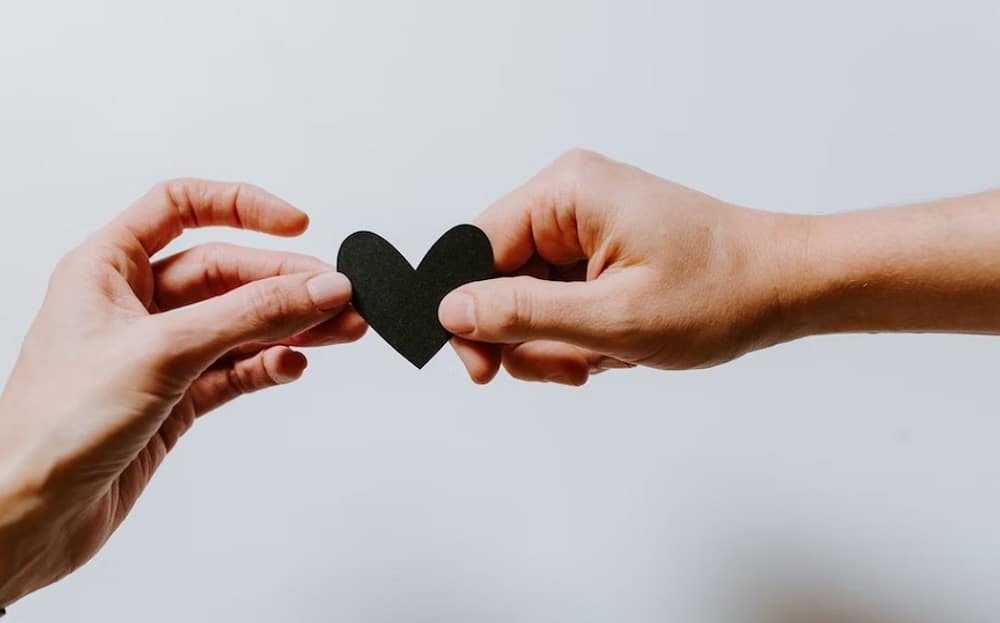Humans are social creatures, and human connection is a key part of the human experience. The power of connection, whether that be a social connection with others or your own connection with yourself, is vital. The connections we make are what help us grow and cultivate genuine connections, which are essential for building lasting relationships.
They lead to our sense of purpose and belonging, bringing us fulfillment. Meaningful connections enhance emotional well-being, fuel career growth, stimulate collaboration and innovation, enrich personal experiences, and foster positive societal change. Deeper friendships and personal relationships are essential to ward off loneliness and improve our mental health.
Without connection, our well-being suffers.
Connection is a powerful force in our lives and one we can always build and improve. When we focus on forming a deeper connection, both with another person or group, or ourselves, we can grow into better human beings.
Let’s take a closer look at the importance of self-connection and building strong connections with others, as well as strategies for overcoming common barriers to connection.
Connecting with Yourself

When we think about connection, our mind often jumps to connections outside of ourselves. We reflect on our personal relationships, whether they be with a parent, a lover, or friends.
While our connections with others matter, building a meaningful connection with yourself is just as important. If there’s one person in life you should want a strong relationship with, let it be yourself, as this fosters personal growth.
Why Self-Connection Matters
If we want to build strong relationships with others, we have to start with ourselves first. As RuPaul once said,
“If you can’t love yourself, how in the hell you gonna love somebody else?”
There is so much truth to that sentiment! Self-connection is the foundation on which we build our relationships with others, giving us the tools to connect.
When we understand and are connected to ourselves, we better understand our own values, ideas, and feelings. This understanding can help with everything from healing and growing to improve our communication skills to becoming a person more open to connecting with others.
How To Connect With Yourself
To begin the process of connecting with yourself, you need to engage in a lot of self-reflection. This means taking the time to think about your own ideas and experiences, and your emotions, and employing some self-care as your work on healing.
To begin this reflection process, you can try things like:
Journalling
Journalling can be a fantastic way to get vulnerable, and more in touch with your sense of self. This process is as easy as finding a notebook and pen, the notes app on your phone, or even a Word doc on the computer, and writing down whatever comes to your head.
The key here is to not overthink it! You may find that you start writing about your day, and then start reflecting on how you felt about your experiences during it. Just let it flow, and you’ll find self-reflection happens naturally.
Self Care
Self-care is also a way to connect with your sense of self.
The definition of self care is self-explanatory: self-care involves taking care of yourself. This includes your mental health, as well as your physical and emotional well-being. I wrote a book on self care a few years ago with weekly actions you can take to improve your care and awareness.
Self-care can look like many different things! Self-care can be taking time to move your body with daily walks, eating a nutritious diet, and getting proper sleep. It can look like finding a way to express your emotions in a healthy way, by journaling or talking to friends. Or it could be seeking help for your mental health with things like therapy or medication.
When people begin to engage in self-care, it draws awareness to their own needs. This provides a great opportunity to grow better acquainted with yourself and grow a deeper connection.
Connecting with Others

If you are a human being on this planet, you’re going to have to form connections with other people. Industry events play a crucial role in professional networking, allowing professionals to share knowledge and insights within their fields. Whether it’s a strong relationship with a family member, work colleagues, or groups of friends, social interaction will always be a part of life.
These connections can inspire collective action, address social issues, and contribute to creating a better world, highlighting the positive impact of personal relationships beyond individual success.
Why Connecting With Others Matters
These relationships are crucial for our own success, both personal and professional. Meaningful relationships are essential for personal success and mental well-being, as they contribute to a sense of belonging and provide a source of support. It is through our connections with others that we learn how to communicate, and express emotion. Human connection allows us to grow empathy, as we learn from one another. And relationships with other people will provide the support and guidance needed to make it through life without becoming lonely.
If you want to succeed, you need to learn how to form deep connections with others. How to build relationships and deeper bonds. It is through building a deeper connection with others that you’ll find opportunities, and bonds that help you grow.
Building connections with others doesn’t only matter for your emotional and personal development. It is also important for your health! Studies from Stanford University show us that human connection is essential for our health, both physical and mental. People who have deeper bonds with others experience less anxiety and depression and have longer life spans.
For the sake of everyone’s health and development, it is worth it to take the time to form deeper connections in our lives.
How to Connect With Others
If we want to truly connect with others, we need to both feel heard and allow others to feel listened to. Insights shared by top industry performers reveal that meaningful relationships have greatly contributed to their success and joy in both their personal and professional lives. It is through conversation and connection that we can grow in our understanding of each other, and build deeper bonds.
But how do we become better at listening and communication? Simple: Active listening, and empathetic communication.
Active Listening
As human beings, forming connections is largely about feeling listened to. If you want to get better at social connections with others, becoming an active listener is key.
Skills You Need defines active listening as listening where you are fully concentrated on what the other person is saying, rather than simply ‘hearing’ it.
In other words, this means giving a person your full attention, taking in what they say without distraction. It means listening without interruption, and without judgment, taking what a person says at face value.
There are some things you can do to become a better active listener, including:
Maintain eye contact during conversations, smiling and nodding to acknowledge what is being said without interrupting
Avoid distractions during conversations. This means focusing on the conversation only, not while using a phone, or doing another task.
Remember things the person is saying, and bring them up again in your responses to show you heard what they said.
Empathetic Communication
In Stephen Covey’s book The 7 Habits of Highly Effective People, he presents an interesting insight into how we communicate, teaching us:
“Most people do not listen with the intent to understand; they listen with the intent to reply.”
This idea ties directly into empathetic communication. Empathetic communication is a process where we focus on understanding a person first, before prioritizing our own response or point of view as a reaction to what they’ve said. Or, as Stephen Covey puts it:
“Seek first to understand, then to be understood.”
But how do we do this? Here are some tips to carry with you in future conversations with others:
When talking about how another person feels, remember to acknowledge their feelings. Even if you do not agree with how they feel, it is a sign of mutual respect to recognize how they feel.
Ask clarifying questions about the other person in your conversation, reflecting on their thoughts, emotions, and experiences
Remember, everyone is entitled to their individual experiences and feelings. Always focus on prioritizing communication with mutual respect.
Overcoming Barriers to Connection

Just because building connections is necessary, it doesn’t make it easy. Oftentimes, problems related to a lack of trust, or struggles with vulnerability can hinder a person from forming connections with others, and even themselves.
Being vulnerable can be a scary thing! It requires trust in another person to receive your emotions with grace, to not react poorly, and to treat you with respect and dignity. In life, you might encounter relationships or situations that let you down, building up a lack of trust in others.
When we begin to mistrust others, a fear of vulnerability can grow. These are where our true barriers to connection begin to form, preventing us from achieving a successful and thriving life.
Overcoming Barriers with a Growth Mindset
For many people, their fear of vulnerability is a result of a fixed mindset that needs to be replaced by a growth one.
When you have a fixed mindset, you can focus on the negative, grow a fear of failure, and not have the willingness to see a new perspective. With a growth mindset, we can be open to the flexibility of life, embracing its challenges and replacing a fear of failure with the idea that failure is a redirection to new opportunities.
It is crucial to remain open to this kind of growth if you are going to push yourself to get over a fear of being vulnerable. Your fear of vulnerability is what you will need to face as you connect with others.
But how do we build up the courage to be this kind of vulnerable? Try the following:
Build a growth mindset. This means learning to embrace fear and seeing mistakes or any inadequacies you think you have as a chance to grow.
Practice sharing your feelings with yourself, to build up the courage to share with others. This can look like journaling or talking to yourself out loud.
Share feelings with someone you trust. When building a deeper connection and becoming vulnerable, pick your most trusted source first, like a close friend or family member.
Prioritize self-care. Being vulnerable for the first time can be a lot! As you push yourself, remember to take care of yourself.
Build Meaningful Connections, Change Your Life!

The power of connection is crucial for your well-being and essential for achieving a successful and thriving life!
When we build strong connections with ourselves and with others, we grow into better people. We build up our self-esteem and sense of purpose, we learn how to better communicate, and be vulnerable. Ultimately deeper connections lead to deeper purpose, helping us in our personal and professional growth.
Rich Woo, through his podcast episodes, explores the importance of personal and professional relationships. He engages with guests to discuss themes of relational capital, emotional intelligence, and the necessity of fostering deep connections for both personal fulfillment and career growth.
As a life coach, I encourage all of my clients to use the power of connection in their own lives on their path to growth. The tips and strategies touched on here are some of the many things I encourage you to employ if you are trying to overcome barriers to connection. Hopefully, it will lead to a deeper connection with others and yourself.
If you’d like to explore the power of connection in your own life, I encourage you to reach out! As a life coach, I can work with you to find the strategies that suit your life. Click here to learn more and book an intro session today.



